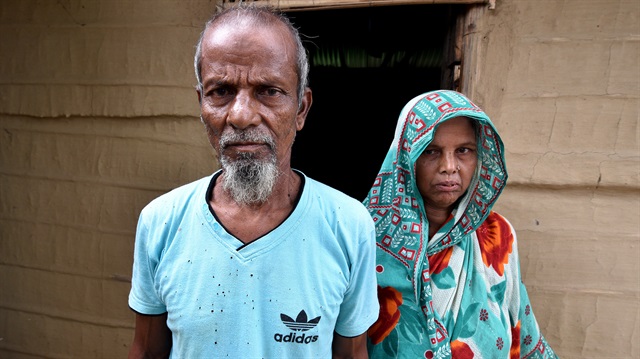

Abdul Suban, a farmer, and his wife pose for a photograph outside their home in Nellie village, in Morigaon district, in the northeastern state of Assam, India July 25, 2018.
FEAR IN THE COUNTRYSIDE
The first draft of the NRC, released on Dec. 31, confirmed the citizenship of 19 million people, leading to jubilation for some and heartbreak among others.
The NRC office, however, told the Supreme Court this month that 150,000 people from the first list, a third of them married women, would be dropped from the next one, mainly because they provided false information or gave inadmissible documents.
Political activists in Assam say most of those are Bengali-speaking Muslims. NRC chief Prateek Hajela, whose office has processed 66 million documents and spent nearly $180 million in the whole NRC process, declined comment on the religion of people who would be removed from the register.
"We are doing an exercise that is unprecedented and if there are course corrections which are required to be done, we will need to do that," said Hajela, who is guarded round-the-clock by a team of police.
Hajela said that most of Assam's 126,000 so-called doubtful voters, and an estimated 150,000 of their descendants, would be excluded from the NRC in accordance with a court order.
One of them is Nellie farmer Suban's son Nabi Hussain, 28, who said he has voted in two Indian elections but now fears arrests.
"We are scared," said Hussain, his wife looking on from their mud-coated bamboo house, their nine-month-old daughter in her arms. "Terrible things happened to our family once, we don't want a repeat."
#India
#Muslims

